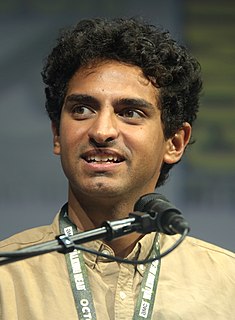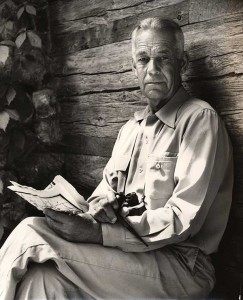A Quote by Henry David Thoreau
But there are spirits of a yet more liberal culture, to whom no simplicity is barren. There are not only stately pines, but fragile flowers, like the orchises, commonly described as too delicate for cultivation, which derive their nutriment from the crudest mass of peat. These remind us, that, not only for strength, but for beauty, the poet must, from time to time, travel the logger's path and the Indian's trail, to drink at some new and more bracing fountain of the Muses, far in the recesses of the wilderness.
Related Quotes
In our culture of constant access and nonstop media, nothing feels more like a curse from God than time in the wilderness. To be obscure, to be off the beaten path, to be in the wilderness feels like abandonment. It seems more like exile than a vacation. To be so far off of everyone’s radar that the world might forget about us for a while? That’s almost akin to death…[But] far from being punishment, judgment, or a curse, the wilderness is a gift. It’s where we can experience the primal delight of being fully known and delighted in by God.
Because God is not only infinitely greater and more excellent than all other being, but he is the head of the universal system of existence; the foundation and fountain of all being and all beauty; from whom all is perfectly derived, and on whom all is most absolutely and perfectly dependent; of whom, and through whom, and to whom is all being and all perfection; and whose being and beauty are, as it were, the sum and comprehension of all existence and excellence: much more than the sun is the fountain and summary comprehension of all the light and brightness of the day.
Only when peace lives within each of us, will it live outside of us. We must be the wombs for a new harmony. When it is small, peace is fragile. Like a baby, it needs nurturing attention. We must protect peace from violence and perversion if it is to grow. We must be strong to do this. But force, even in the name of honor, is always tragic. Instead, we must use the strength of wisdom and conscience. Only that power can nurture peace in this difficult time.
You may object that by speaking of simplicity and beauty I am introducing aesthetic criteria of truth, and I frankly admit that I am strongly attracted by the simplicity and beauty of mathematical schemes which nature presents us. You must have felt this too: the almost frightening simplicity and wholeness of the relationship, which nature suddenly spreads out before us.
What is that which can never die It is that faithful force that is born into us that one that is greater than us that calls new seed to the open and battered and barren places so that we can be resown. It is this force in its insistence in its loyalty to us in its love of us in its most often mysterious ways that is far greater far more majestic and far more ancient than any heretofore ever known.
Without our fully realizing it, flowers would become for us an expression in form of that which is most high, most sacred, and ultimately formless within ourselves. Flowers, more fleeting, more ethereal, and more delicate than the plants out of which they emerged, would become like messengers from another realm, like a bridge between the world of physical forms and the formless.
I now want to tell three stories about advances in twentieth-century physics. A curious fact emerges in these tales: time and again physicists have been guided by their sense of beauty not only in developing new theories but even in judging the validity of physical theories once they are developed. Simplicity is part of what I mean by beauty, but it is a simplicity of ideas, not simplicity of a mechanical sort that can be measured by counting equations or symbols.
Wilderness can be appreciated only by contrast, and solitude understood only when we have been without it. We cannot separate ourselves from society, comradeship, sharing and love. Unless we can contribute something from wilderness experience, derive some solace or peace to share with others, then the real purpose is defeated.

































